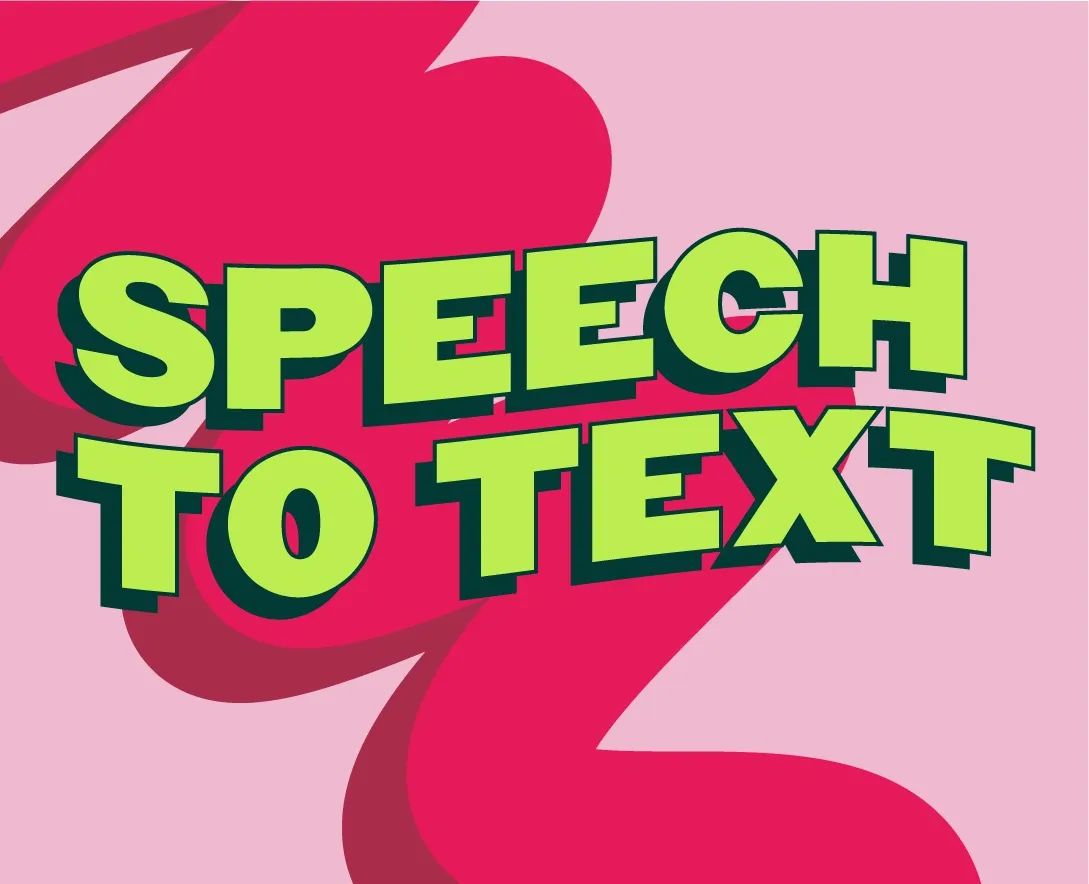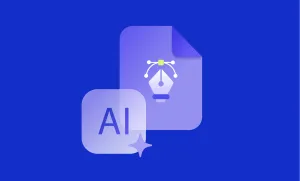Podcasting has become a prevalent source of online entertainment and knowledge, with a massive worldwide interest in podcasts of different categories. Whether it’s about politics, sports, science, poetry, motivation, or any other field, the podcasting audience base is continuously expanding. Moreover, the demand for quality content increases as people are becoming selective when subscribing to podcasts.
While the majority enjoy listening to their favorite podcasts, many can’t do the same due to hearing impairment at different levels. Therefore, the need for a speech-to-text technique has emerged recently to enable transcribing podcasts into a written format. Such an approach allows podcasting to enlarge its influence by becoming available to people with hearing difficulties or others who prefer reading over listening for various reasons.
Nowadays, many online platforms and tools offer speech-to-text conversion, also known as audio-to-text transcription. Many benefits and challenges accompany the technique, and this article will introduce them in detail.
Reach a wider unexpected audience
People with hearing impairments wouldn’t have been able to enjoy podcasts without speech-to-text transcription. Considering the fact that nearly 16% of American adults report having hearing difficulties, transferring podcasts from their audio format into text is something they’ll appreciate and podcasters would benefit from. In fact, it was the deaf and hard-hearing people who pushed the development of written podcasts to the maximum.
A written transcript will be helpful for those who don’t understand the podcast language, as the text can be quickly translated into another language. Moreover, many people can’t listen to podcasts for various personal reasons, even if they don’t have hearing issues; Such people would also like the idea of reading the podcast episodes.
Better User Experience
Getting the listeners’ attention is great but keeping them in the loop is the hardest step. Although podcasting mainly started to accompany ongoing daily tasks like driving or exercising, some prefer to listen to podcasts with more focus. Providing a written text allows them to keep track of the episodes effortlessly just by reading the script.
Actually, most podcasts add concise descriptions of the episodes, but that isn’t enough to hook the audience and keep their attention. Instead, by providing a detailed podcast script, people will become more familiar with the podcast’s content before they start listening to it.
Make the most of each episode
Publishing only audio or video episodes limits their usability. However, the speech-to-text transcription will make it more accessible. The written content allows adding more detailed podcast descriptions, turning them into blog posts, and sharing them on social media. For example, one weekly content episode can provide at least ten days of content through social media and articles!
Go viral on social media
The ultimate wish of every podcaster is going viral on social media nowadays. Converting the episodes into a written text helps listeners quote and share them through their personal or business social media accounts. It will work as a smart marketing strategy contributing to the podcast’s brand awareness.
Boost SEO Efforts
When starting a podcast, one recommended step is building a website. However, an empty website won’t attract good traffic. You need people to find the website as they’re looking for your podcast or related topics, so the website must show up high in Google Search Results Pages which needs SEO.
The core of any SEO strategy is content; Google can’t crawl the visual or video content like well-written SEO-friendly content with the right keywords. Backlinks are an effective SEO strategy; getting a proper backlink requires having a quality content piece in text format.
Transforming the episode’s audio file into text will make it easy to use and modify the content for search engine purposes. The content can be added as episode descriptions, blog posts, articles, etc.
Credit the podcast
Citation is an excellent advantage, but audio and videos can’t be cited. Therefore, some great episodes’ credit can be lost. Providing the podcast episodes in text format will help in quotation and citation and add credibility and recognition to the podcast show.
Challenges of Speech to Text
Even though the speech-to-text strategy has many advantages, there are many challenges that a podcaster might encounter throughout the process.
Background noise
One of the main struggles is getting a noise-free audio file. While recording equipment is excellent for a clear voice, they also record the sightless noise in the background. The noise confuses the AI when transforming the audio into text and limits the processability.
Advanced podcasting tools like Podcastle can eliminate the noise and perform a full AI-based text-to-speech transcription online. A few steps are all it takes to upload a podcast audio file and get it transcribed with various other editing options to improve the quality.
Accents
Accents are a big challenge many podcasters have to face. Sometimes the text-to-speech tools can’t recognize the words clearly due to the podcaster’s accent. It requires manual editing after the transcription is over to check all the words and ensure everything is in place. This process could be time-consuming with longer podcast episodes.
Echo
An echo-free room is essential for those in the podcasting industry; some prefer recording under a blanket in a closed closet to minimize the echo. Recording tools capture sound waves; the echo is reflected from surfaces such as windows, and the reflected waves lead to reducing clarity.
Disorganized Speech
Podcasts are either solo, where the host talks about the topics alone, or in the form of an interview, in which the host invites online or in-person guests to discuss the topics together.
The discussion between two people or more is hard to identify by AI because it will read the audio file as a whole, not as a multi-person conversation. Another issue is the used language because sometimes, when discussing a topic, people might merge words or phrases or use slang that AI can’t easily interpret.
Machine error
Even though the technology is being updated and improved, it still can’t provide 100% accuracy. So for at least some time, the exported text file will still need extra time for manual editing and proofreading.
Conclusion
Podcasting is an evolving industry. To keep up and stand out from the massive podcast competitive market, you must adopt every new technology that facilitates listeners’ reach, drives engagement, and boosts brand awareness. Converting the audio file into a text is a winning strategy for reaching a new audience, even those who might not come to your mind.
Utilize the speech-to-text tools to help people find and share your podcast by providing a written one.








